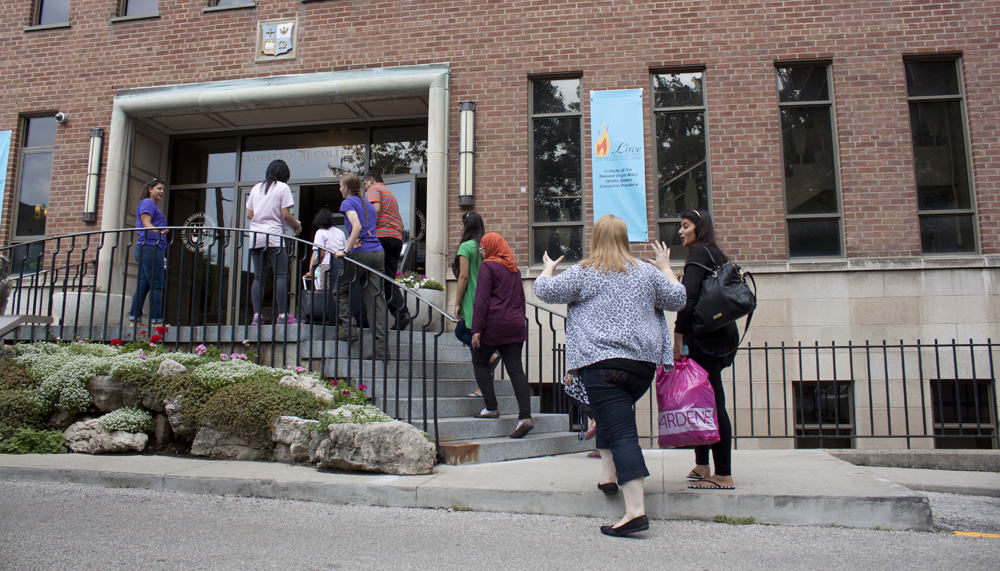Earlier this month, in an investigation by The Varsity, former residents at Loretto College raised concerns about the college’s policies and its residence atmosphere. Loretto is a private, all-female residence affiliated with St. Michael’s College (SMC). The Varsity spoke to former residents who were uncomfortable with the conservative policies and tone of the residence and the requirement that they formally agree to live in a “Christian academic community.” Under the University of Toronto’s residence guarantee policy, some students also faced a choice between living in Loretto and not living in residence at all. The university has now clarified its position on some of the questions raised by the investigation, although significant questions remain unanswered.
Michael Kurts, assistant vice-president of strategic communications, was asked whether women could have been placed in Loretto without requesting it in the first place. Kurts explained that there are higher demands for particular residences than can be met. When this is the case, Housing Services identifies other residences that have open spaces, and offers students a place within these alternative residences. “This means that any student may be offered a space in a residence that they did not select as their choice. This would be as true for Loretto as any other U of T residence,” he said. If a student chooses to decline this offer, they are placed on a waitlist for their first choice residence. Kurts acknowledged that the likelihood of getting a spot in one’s first choice residence after being placed on a waitlist was “very low.” A number of the girls interviewed during The Varsity’s investigation said they felt uncomfortable signing the residence agreement but were told that no other option was available. Some elected not to sign the residence agreement and found off-campus housing.
Kurts further clarified that all U of T policies are in effect at Loretto College, as it is affiliated with the university, and that while they do not have an exact number of girls who did not select Loretto as their first choice, “the number is small, and likely fewer than five.” The Varsity interviewed more than a dozen girls, who entered across multiple years, and indicated that they did not select Loretto as a first choice.
The SMC residence office said that all Arts & Science students who are a part of SMC are offered both a spot in Loretto and a spot in SMC proper, but the same does not seem to be true for professional faculty students, who are dealt with separately. Many of the engineering students interviewed during the course of the investigation claimed they were told they would be offered spots in both Loretto and SMC. However, when they were offered spots in Loretto and inquired about the alternate offer, they were told none was available.
When asked what would happen if a student was uncomfortable with the religious aspects of living at Loretto, Kurts said that an attempt would be made to find another space. However, he warned: “Most often than ever, our residences are full to capacity and there may be no other spaces available.”
Meanwhile, Angela Convertini, dean of residence at Loretto College, said she felt that no students were forced into Loretto. When asked about why the residence agreement was not made available online, Convertini explained that as a smaller residence, Loretto does not have access to a webmaster and therefore is unable to maintain a separate website containing its residence agreement.
Convertini claimed women have as much knowledge about Loretto as any other residence: “We have people come by and tour the residence, look over the residence agreement, and understand what they’re getting into. Many of the women quoted in the article never came to us with any problems…they were made fully aware of the nature of the residence and the environment in which they were choosing to live.”


